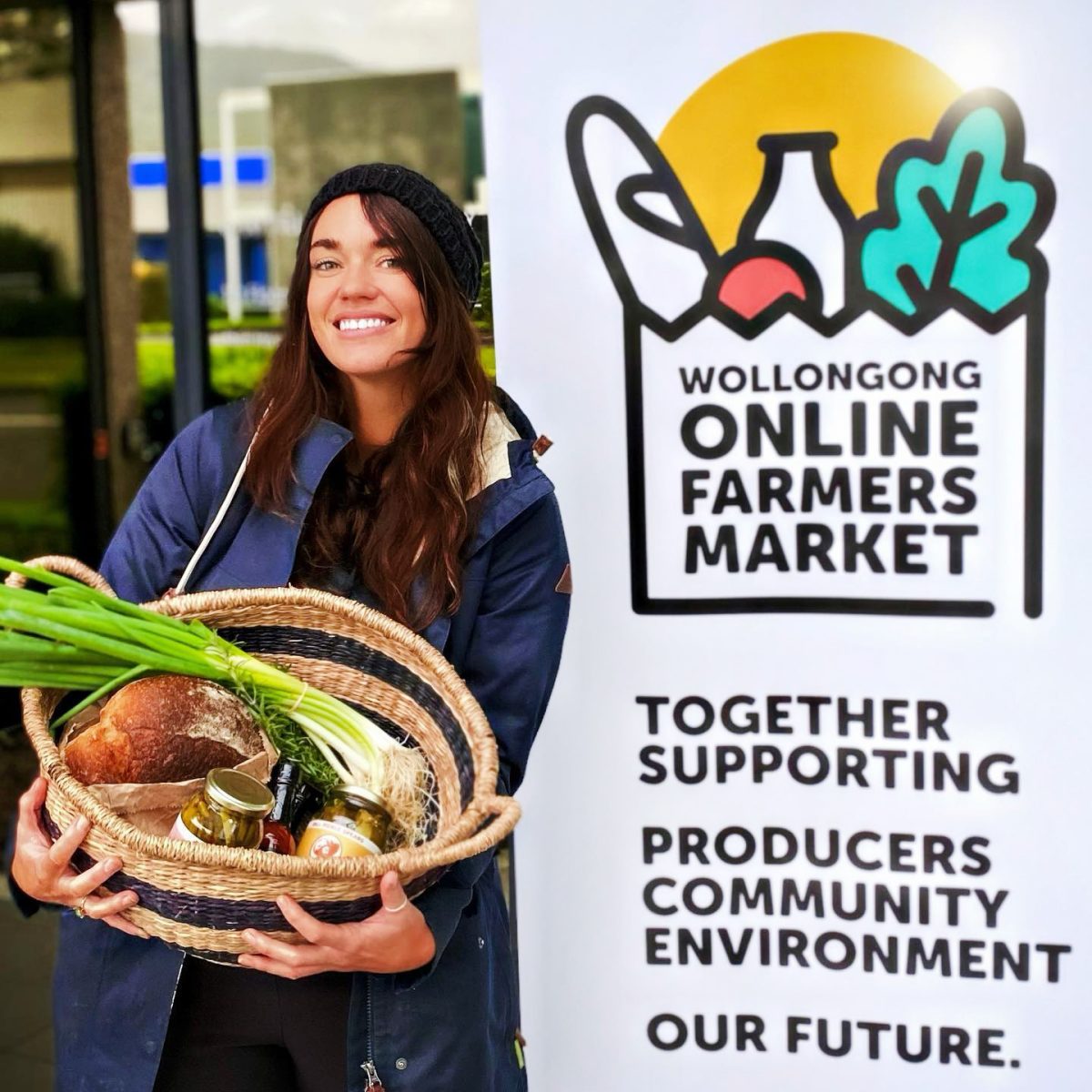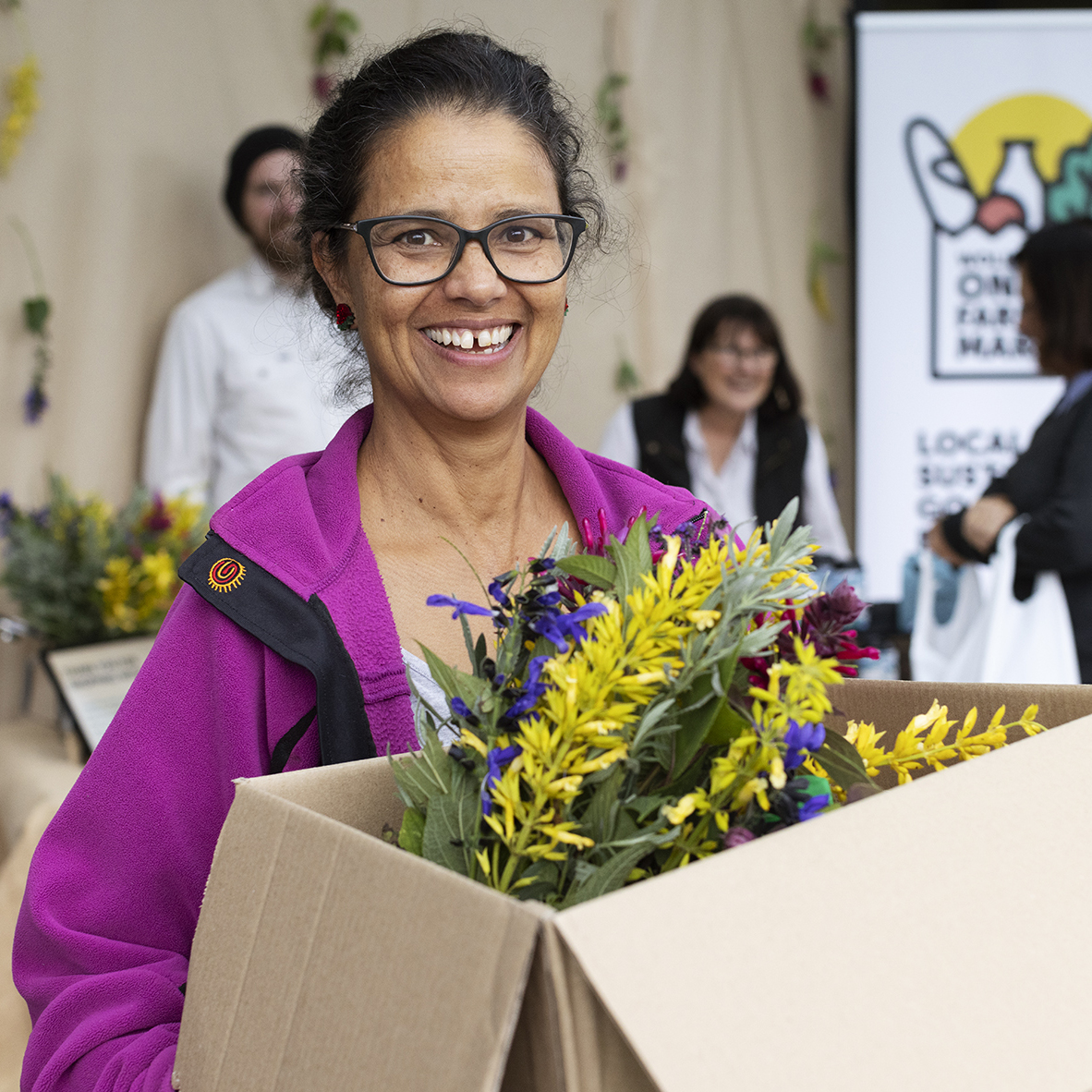Tell us a bit about yourself – what is your background and how are you involved in the local food system?
Last year I graduated from the University of Wollongong with a Master of Nutrition and Dietetics. I live locally in the Illawarra community and naturally, I have a deep passion for all things food and cooking. My curiosity to understand the role of the food system in environmental degradation and climate change inspired me to undertake my undergraduate degree in Nutrition Science. This has led me to where I am today, and this research project has reaffirmed to me the importance of a local food system for the health of the environment.
I have always tried to be conscious of my carbon footprint with the food I consume and the products I purchase. However, since finishing my studies I have made an effort to reduce my food waste and take part in a local food system by growing a few fruit, vegetable and herb plants. I am so excited for these plants to expand into a small fruit and vegetable garden and use the fresh produce in my cooking.

Tell us about your research project – what is it about and what have you achieved so far?
My research project evaluated the first year of the Wollongong Online Farmers’ Market (WOFM), a food hub developed by Healthy Cities Illawarra and Food Fairness Illawarra. The market was created as an adaptation measure to the climate crisis by offering a more resilient local food system. The aim of the WOFM was to increase residents’ access in the Illawarra region of New South Wales to fresh local produce. The WOFM ran from March 2022 to December 2022 and unfortunately ceased operation in January 2023 due to insufficient sales that could not meet its overheads, making it not economically viable to continue.
My research project explored the perspectives of producers and repeat customers (those who purchased from the market more than once) as well as the sales data from the website to understand the feasibility of the WOFM to inform future virtual farmers’ markets. For this project, I interviewed 3 producers who partnered with the market and 10 repeat customers who attended either: a focus group at the University of Wollongong in April or an individual online interview.
What are the key takeaways from your research?
Our main finding was that The Wollongong Online Farmers’ Market created a greater awareness of local producers to the customers who participated in the market. However, community support for the market did not expand past the cohort of consumers who were already engaged in the local food system. Therefore, there is a need for greater support in creating a local food system in the Illawarra community.
- The most successful type of producers who partnered with the WOFM were fruit and vegetable growers, bakers, dairy producers and ready-made meal providers.
- We found that consumers perceived a local food system to be one that is within a close geographical location, is socially and environmentally resilient and provides one with social connection as seen at local community gardens.
- Customers perceived motivators and incentives for participating in the local food system were related to environmental activism and social support for local producers, while cost and perceived cost of locally produced food was a barrier to partaking in the WOFM.
- Both customers and producers identified a need for change at a government level to improve education about the relationship between the food system and the environment, with many participants suggesting this education be a part of the school curriculum.
- Repeat customers believed the WOFM was a convenient outlet for them to access local producers. However, both customers and local producers agreed, that to create a reliable local food system, there should be no interruption to customers access to the market itself, as well as products sold through the online farmers’ market.


Is there anything else you would like to add?
Participating in the local food system is great for the environment, your health and the local community.
Ways you can partake in creating and supporting a local food system include:
- Growing your own food. If you want to start small like me, you don’t need much space to grow herbs. Growing your own food is very rewarding and can be good for your wallet as well. See the Grow your own Food guide for more tips & tricks.
- If you don’t have the space to grow, join your local community garden. It is a great way to access locally produced food and meet new people in your neighbourhood. See the Community Garden Directory to find out where they all are.
- Support local producers and business owners. See the Buy Local Guide on where to start.
- If you are interested in supporting the local producers who previously partnered in the Wollongong Online Farmers’ Market, you can find them here.
Finally, I would like to say:
Big thank you to the producers and repeat customers who participated in my research project. Without them volunteering their time to talk to me, this research project wouldn’t have been possible, so I am extremely grateful for their contribution.
Ashleigh Walter



